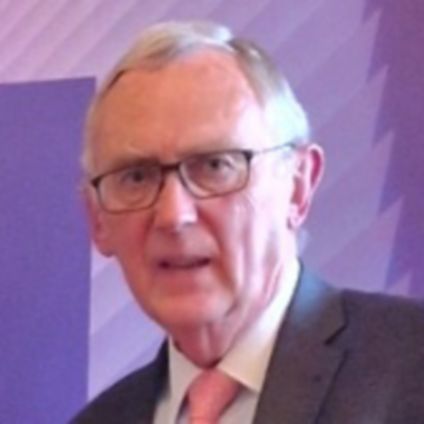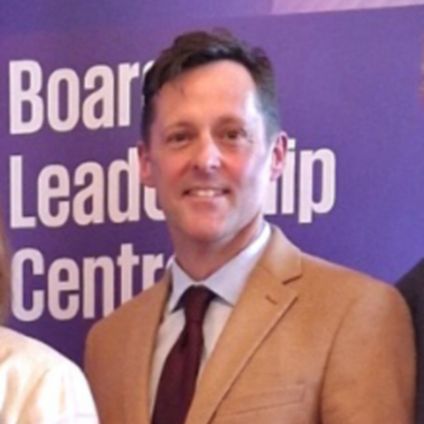When it comes to business and the boardroom, Professor Tim Rowley has pretty much done it all. “I’ve sat on 12 boards; I’ve chaired two; sat on one audit committee; been involved in three exits, one IPO; fired two CEOs,” Rowley recounted to an attentive audience of directors and board chairs at the latest Board Leadership Centre event in Dublin.
Now holding dual roles as Professor of Strategic Management and Organisation at the University of Toronto and Co-Director of the International Director’s Programme at INSEAD Business School in France, Rowley is well-qualified to give the keynote address on board performance. Describing macro trends in “governance with a big G”, he welcomed a shift towards the professionalisation of boards in the past two decades.
“In the early 2000s, if you were asked to go on a board, it was probably a reward for being a manager somewhere, and it was almost volunteer in many ways,” he said. “Today, being on a board is a profession. There is real liability, real accountability attached to it. That’s a good thing; the more that we can create a profession around boards and governance, the better off we’ll be.”
That shift has created challenges and opportunities around board-building and performance. Rowley drew parallels between board membership and a neighbour in his native Canada who was an airline pilot. Up to 90% of the time, the pilot said, his job was like “a glorified bus driver” but he still attended regular simulator training to prepare for crazy, unexpected situations.
“That’s a board,” said Rowley. “Most of the time a bad board can exist because the company is doing well. But when the board is really needed, it’s way too late to get into the simulator. You have to be practicing for the bad times from the very beginning.”
Get the Board balance right
On board formation, there has to be a balance between filling seats with industry specialists versus independent outsiders, said Rowley. “Years ago, we were okay with insiders. The pendulum has swung so far, the other way, that now what we covet generally is independence. That’s okay, as long as you can fix the inherent problem of that trade-off – but a lot of boards have not addressed it.”
What was clear from Rowley’s keynote and a subsequent panel discussion with Gary McGann and Linda Hickey, two of Ireland’s most experienced PLC directors, is that robust discussion is key to the effectiveness of any board. “Like any team, the goal for a board is to make decisions better than any individual, even the smartest person in the room or the person with the most shares,” Rowley said.
“It turns out that having individuals with opinions doesn’t really help. It’s when those opinions are put in the middle of the table, there’s a good discussion and somebody in the room changes their mind as a result. It’s the discussion in the room that’s the critical part that makes a board effective. That’s definitely a pattern I’ve seen in boards that are successful.”
A really good board is probably the cheapest set of consultants an executive can ever get.

More volleyball, less tennis
“I have a view that a really good board is probably the cheapest set of consultants an executive can ever get,” said McGann, who chairs Aon Investment Holdings Ireland and the Sisk Group parent company, Sicon. His stellar CV includes chairing Flutter and being chief executive at Smurfit Kappa, Aer Lingus and Gilbeys of Ireland. He was also a director of Green REIT and Aryzta.
Still, there were nods of recognition in the room as Rowley described many board meetings with the CEO as the most frequent speaker, “selling or defending” their position. “I call that tennis,” he said. “It’s a tennis game, versus having a real discussion that goes around the room, which is volleyball. There’s way too much tennis in a boardroom, not enough volleyball.”
Hickey, who is Senior Independent Director at Kingspan and Non-Executive Director at Cairn Homes and Greencore, concurred. “We’ve all suffered death by Powerpoint. If management come in with a 60-page Powerpoint and they intend on delivering it to you, you just have to say, ‘no thank you’.” She added: “The easiest way for a CEO to kill a discussion is to turn it into a bilateral.”
Information gap or information overload?
Rowley highlighted the information gap that inevitably exists between company management who are “24/7 eating, sleeping, drinking, dreaming about the organisation” and board members who parachute in one or twice a quarter. “You have an inferior information position relative to management. How do you provide value, with that discrepancy of information?”
As a counterbalance, Rowley is a fan of attending trade shows to talk to competitors and described one company whose board members sit on the customer service line one day a year. Hickey, a former Head of Corporate Broking at Goodbody Stockbrokers and proud “generalist”, recommends reviewing peer companies and getting analyst views on industry and competitor performance.
“Keep an eye on the competition and it’ll normally keep you straight,” agreed McGann. He offered an alternative view of the information issue, however. “The information gap isn’t the thing I worry about. It’s information overload, it’s obfuscation. It’s the 500 pages in a board pack on a Friday night for the Monday board meeting. The board don’t need 500 pages, they need five pages with critical issues. If they want the appendices to read later, then happy days.”
Committees for complexity
All three panellists agreed on one route for board members to bring added value: join the audit committee. Rowley cited research with colleagues at INSEAD which shows that boards with large independent audit committees – and board members with past audit committee experience – had a positive impact on a company’s performance.
“When you're on an audit committee, you're forced by the nature of the work to bridge the information gap. You don't have a choice,” he said. “Many boards have unintentional two-tiered boards: the people in the investment committee and the audit committee, and the other people that don’t know the company as well.”
McGann always encourages board members to at least attend committees in order to access to the most information possible. He had one caveat about committees, however. “There is a danger in some boards that, if it has legs or eyes or ears, it’s in committee,” he said. “Putting things into committee that really should be at board [level] really must be avoided because otherwise the quality of the discussion and the value of the board is lost.”
Hickey believes sustainability should be a full-board issue and not confined to committee, for instance. Meanwhile, “the AI committee is coming”, said Rowley. “Yes,” joked McGann, “but it will be chairing itself.”
Board effectiveness is hampered when you have the shareholder conversation in the boardroom.

Drawing the line of duty
Of all the questions that board members face, among the most pressing is, “To whom do you owe a duty?” said Rowley. His exercises with board members globally provoke a variety of answers, from staff to shareholders, and people are willing to defend their position with almost religious fervour. “People really believe what they believe, and you can’t change their minds,” he said.
Rowley recommends that board members consider the duty question once a year, and also when they are faced with a new scenario or when a new board member joins. Duty to particular shareholders should not be part of the conversation: “You are actually responsible for the value of the share, not who holds it. That's a fundamental difference,” he said.
“It’s very clear from the work I've done that board effectiveness is hampered, impeded, when you have the shareholder conversation in the boardroom.”
In that regard, Hickey highlighted that the voices of shareholders, particularly institutional shareholders “who may have very different agendas”, get too much play in boardrooms. “Your current share register is only a moment in time,” she said.
McGann, who believes a board’s biggest responsibility is getting the right CEO in place, returned a number of times to a simple mantra. “My sense, consistently over the years, irrespective of what role you play, is your duty is to the company and the sustainable future and wellbeing of the company,” he said. “Whenever you are trying to figure out what to do, start with the sustainable wellbeing of the company. Nobody, but nobody, is bigger than that.”
For Ryan McCarthy, Audit Partner and lead of the Board Leadership Centre in Ireland, the discussion and audience interaction highlighted very healthy interest in making boards better. "Creating effective boards is a process not an event. What we’re seeing is a huge appetite for insights and guidance and we’re committed to continuing to meet that need,” he said.
Get in touch
We understand the pressure boards and directors are under to get it right and to understand and to act upon the myriad of their obligations.
If you’d like to find out more about the support offered by the Board Leadership Centre we’d be delighted to hear from you.

